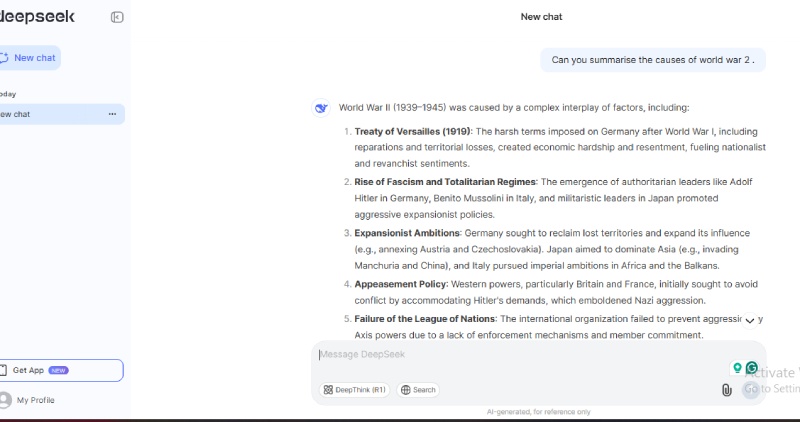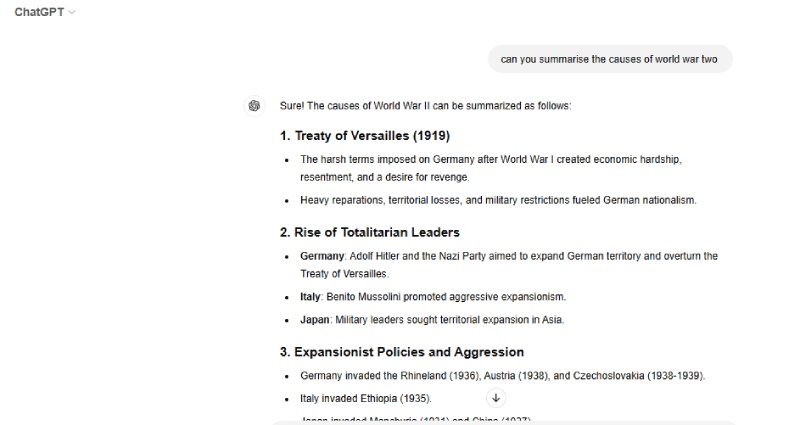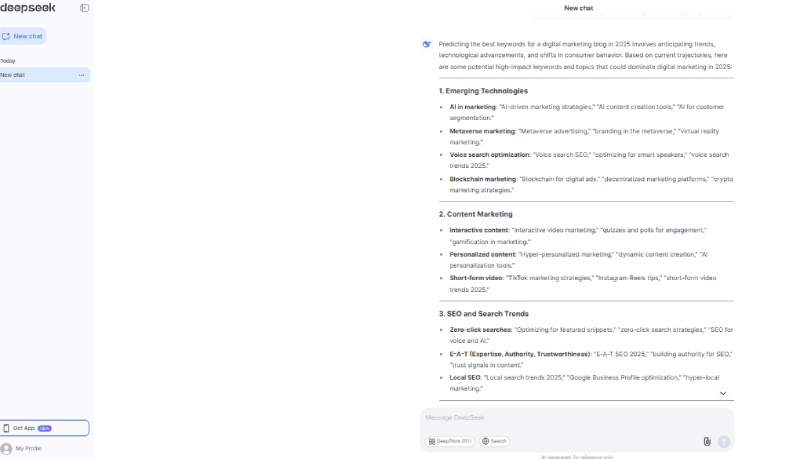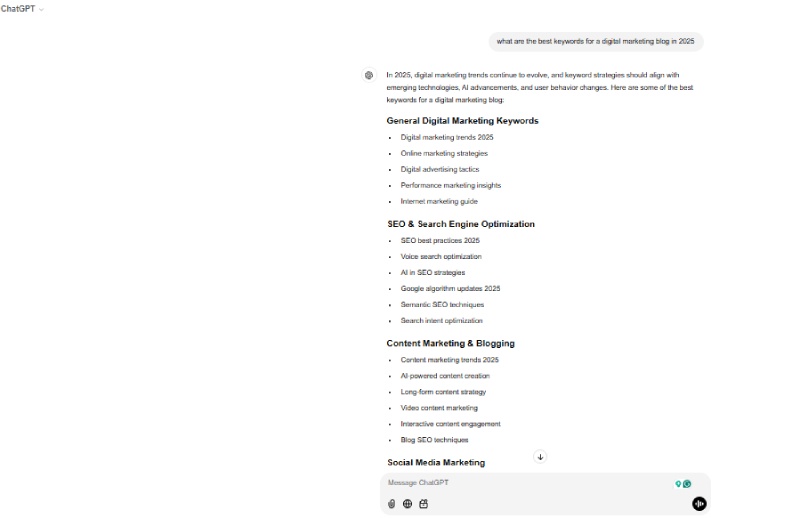
When news spread that China had launched its first open-source AI start-up, DeepSeek, it caused a big stir in the stock market. This innovative AI tool has proved to be much more resourceful and efficient with less investment than other top chatbots like OpenAI or Google. Nvidia, a major US company that makes chips that are used in AI products, saw its stock price drop by 17% which means that it lost $590 billion in its total stock value. Other tech companies also experienced the same downfall in their stock prices.
This leads to an important question: how does Deepseek measure up against ChatGPT? In this blog, we will discuss DeepSeek AI, compare it with ChatGPT, and test both chatbots to determine which will be leading the way in 2025.
What is DeepSeek AI?
DeepSeek AI’s breakthrough as an affordable AI technology got the attention of the entire world and has made many tech companies nervous. On Monday, DeepSeek became a huge hit, reaching No:1 on the Apple App Store for the most downloaded free app in the US. President Donald Trump said that it was a “wake-up call” for many US tech companies who should focus on “competing to win”. So, let’s understand DeepSeek AI and what makes it so special.
DeepSeek AI is an open-source Chinese artificial intelligence platform; developed by Liang Wenfeng, and has quickly gained attention worldwide for delivering impressive results without a hefty investment. It acts like a smart chatbot, answering questions and assisting with complex queries in a conversational manner. As a significant part of the growing field of AI development, this chatbot helps users with tasks like research, data analysis, content generation, and academic and creative writing.
A Comparison Of Features Of DeepSeek AI & ChatGPT?
Besides being cost-effective and open-source (free to use), DeepSeek has positioned itself as a strong competitor among other chatbots and AI tools. However, in the fight of ChatGPT vs. DeepSeek, let us compare their features to understand the working and performance of the two AI chatbots.
| Feature | DeepSeek | ChatGPT |
| Ownership | Chinese (Open-Source) | U.S Based (Owned by Open AI) |
| Training Cost | $12 million | $500 million |
| Model Architecture | MoE (Mixture of Experts) framework for efficiency | Transformer-based model for versatility |
| Memory Function | No memory functionality | Remembers details from past interactions |
| Performance | Optimized for specific tasks and provides strong logical breakdowns. | Reliable and consistent performance across all domains. |
| Ethical Considerations | Specific focus on fairness, transparency, and bias. | General responses with built-in ethical filtering |
| Speed | Faster due to optimised resource usage | Moderate speed depending on task size |
| Natural Language Output | Contextual, task-focused, and formal outputs. | Natural, casual, and conversational outputs. |
| Voice Interaction | Does not support voice interaction. | Supports advanced voice mode for conversations |
We Asked DeepSeek AI & ChatGPT The Same Questions. These Were The Responses
To judge the performance and working of both DeepSeek and ChatGPT, we decided to ask them the same questions and assess their responses. Here is how both models delivered:
General Knowledge & Academic Help
Students looking for assignment help often turn to AI tools like DeepSeek and ChatGPT for quick summaries and easy explanations to complete their coursework. Hence, we decided to ask both chatbots the same history question; “Can you summarise the causes of World War Two?” These were the individual responses.
DeepSeek:
The response by DeepSeek was impressive. It covered all the main points and factors in a concise and balanced manner. However, the language was extremely technical and complex which can be difficult to understand.

ChatGPT:
The response by ChatGPT followed a natural sequence and the causes were broken down into digestible points. The language was user-friendly and informative, which can be understood easily by students and researchers.

Marketing Research
To compare the effectiveness of DeepSeek and ChatGPT, we decided to test how each tool generates keywords suggestions for digital marketing content. We asked both chatbots the same question, “What are the best keywords for a digital marketing blog in 2025”? These were the responses.
DeepSeek:
DeepSeek provided a comprehensive set of keywords that covered a variety of topics related to digital marketing, such as content marketing, SEO, social media, e-commerce, global trends, and more. The response was divided into clear and understandable sections, which made it easier for readers to navigate through the points. Moreover, the response not only gave keywords but also suggested how to use them.

ChatGPT:
When it comes to ChatGPT for keyword research, the response was concise and short. Even though it covered numerous topics, it lacked depth and specific trending keywords related to digital marketing in 2025.

Concluding Thoughts
AI chatbots like ChatGPT and DeepSeek are still evolving, so it is difficult to choose any one from the two. However, it is exciting to see that DeepSeek has proven that cutting-edge AI tools and software can be developed with less investment and resources. But, if you must ask which tool is better, then it depends on your needs. If you are looking for an AI tool that is efficient for technical tasks, then DeepSeek is the right choice. It is designed to handle technical queries in a more structured and formal manner, whereas ChatGPT is better for simpler tasks like content generation and conversations. You can test both of them to see which suits your needs better as both AI chatbots are free to use.